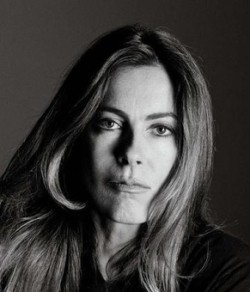
She’s the director of “Zero Dark Thirty”—the controversial motion picture detailing how U.S. Navy SEALs took down Osama bin Laden—which is up for several Academy Awards on Sunday, 24 February. Her film, “The Hurt Locker,” won her the 2009 Academy Award for Best Director and was voted the year’s Best Picture, along with receiving four other awards. At the height of Oscar Week, Proceedings Managing Editor Fred Schultz had the opportunity to pose a few questions to Kathryn Bigelow.
Naval Institute: Hollywood’s treatment of military subjects has famously been inaccurate and sometimes unfair. You obviously have a deeper appreciation for getting things right. Where did that come from?
Bigelow: My favorite war-themed movies have generally been those that themselves worked hard to get things right. As a result, of either knowing that was the case or simply intuitively feeling it was the case, I regard those films as more honest, and therefore more credible. If you’re taking on a serious subject matter, especially one that may have a connection to your audience, you owe it to the project to be truthful and respectful, if not literal in every way, but truthful. I think as an audience we appreciate the effort, and as a filmmaker I feel more vested in the project.
Naval Institute: When you set out to do “The Hurt Locker” and “Zero Dark Thirty,” how did you expect them to be received by the rest of the film industry?
Bigelow: That’s a good question. I suspect if I had thought about it too much, paralysis may have set in. Especially concerning “The Hurt Locker,” because as you know, by that time movies set in the Middle East had not done well at the box office. I felt as a director I wanted to shine a light on the singularly heroic efforts of our men and women serving in those daunting capacities. I had hoped since that job wasn’t particularly well covered, at least by the media, that audiences would be interested in how the job was done. But I held out no fantasies that they’d be lining up around the block.
For “Zero,” clearly the anticipation of the film was discussed even before we had a script, due to the notoriety of the event itself, of course, but also due to the speculative accusations being fabricated by certain politicians. But by that time it was too late to consider “how” audiences would react, as we were into the filmmaking already. I just hoped in general that people would see that we were telling an exciting, heroic story that was as truthful and fascinating to them as it was to us.
Naval Institute: What was most helpful to you when you made these films?
Bigelow: Research, in the story-writing, on our writer Mark Boal’s part, knowing he was getting it right. And great advisers to help guide us through the details. Also, quite simply, curiosity and obsession to detail. For example, we wanted to get the compound right, because we chose to build it as a replica in order to shoot in all quarters, so our production designer, Jeremy Hindle, researched down to the tile design every aspect of that place. We pored over video footage, read all published descriptions, and spoke to some who were intimately familiar with the events, in hopes to get their heroic operation right. We felt that if that was right, the scene would feel right to the actors, and the audience.
Naval Institute: Do you have any other military-themed projects on the horizon?
Bigelow: I don’t yet know what I’m going to do. Except I know I’m going scuba diving, and taking a break.
Naval Institute: What were the most rewarding aspects of making military-themed films?
Bigelow: In both films we present people whose work is largely unknown to the outside world. Their selfless efforts on our behalf are inherently dramatic, and new to most of us. It was an honor to highlight them and their heroism.
Naval Institute: What message might you have for people involved with something called the U.S. Naval Institute, which has been in existence since 1873?
Bigelow: Well, that’s a new one. I guess it would be to say: Some of us know what you do for us daily to keep us safe, and we’re grateful and proud of you.




